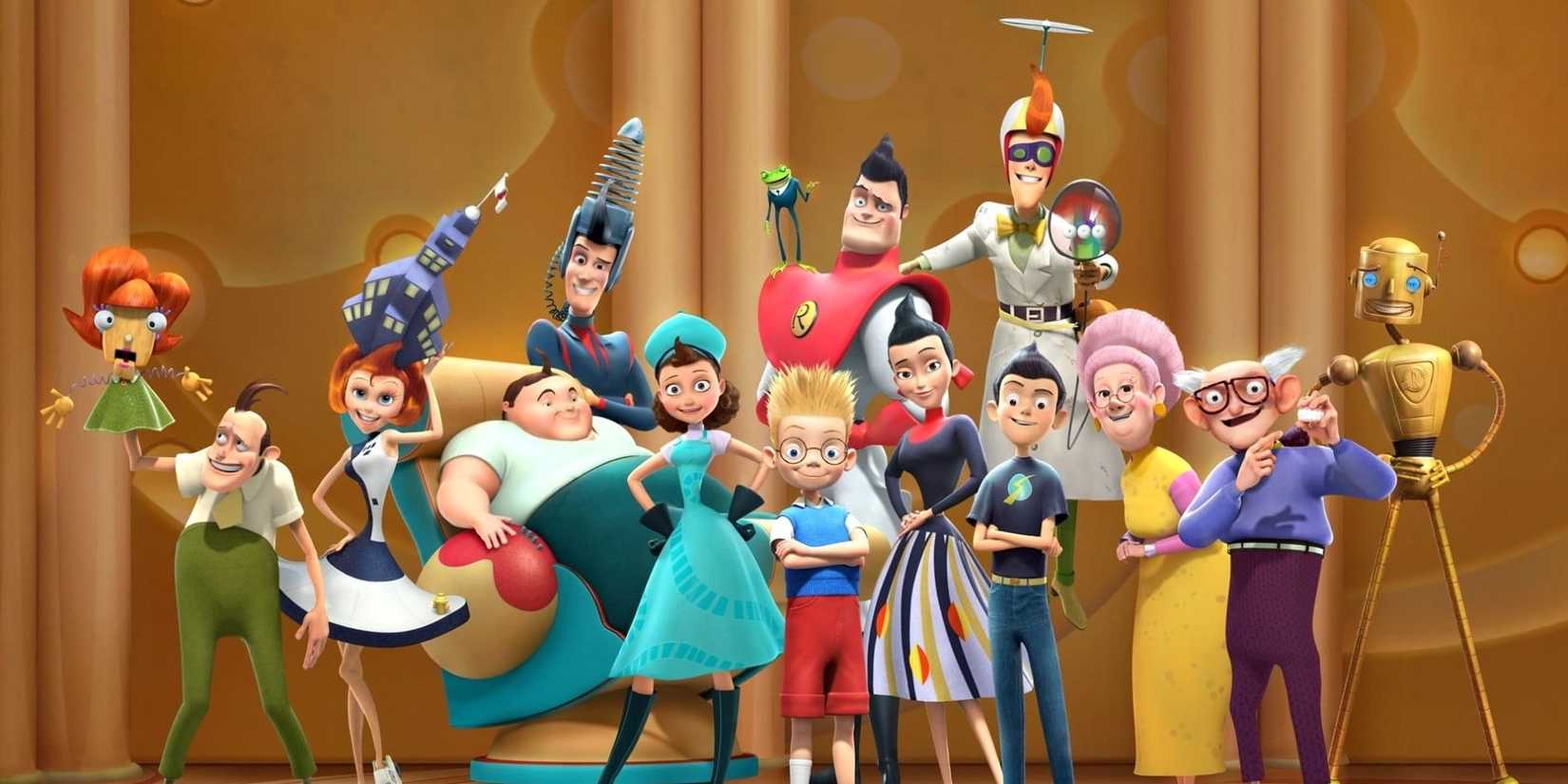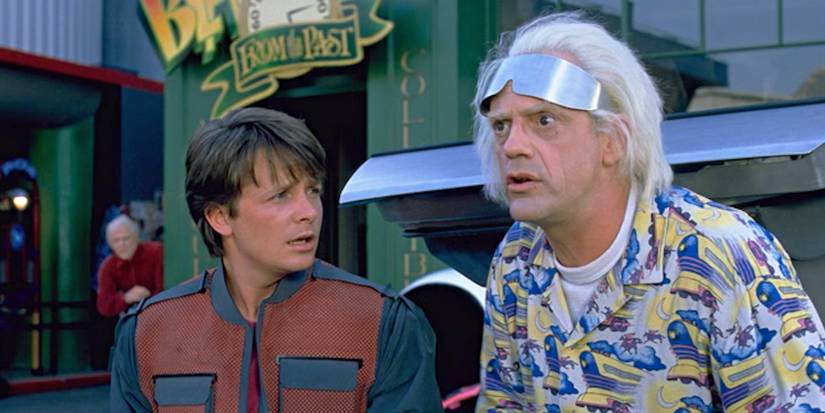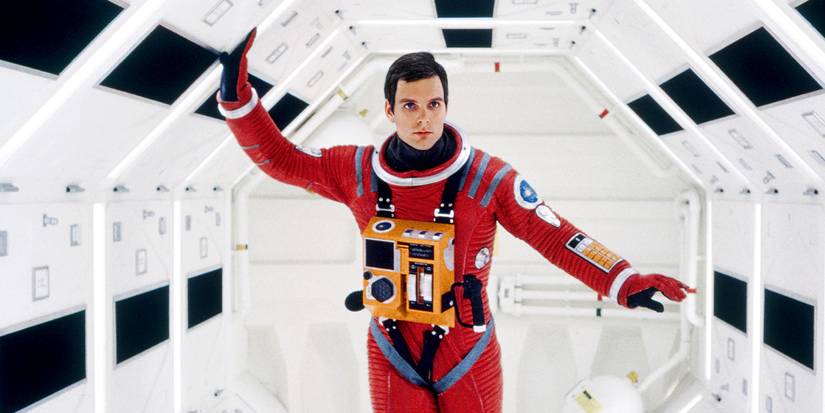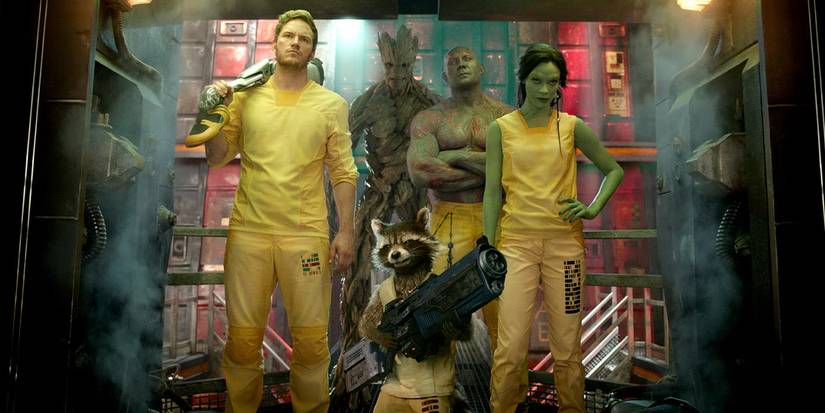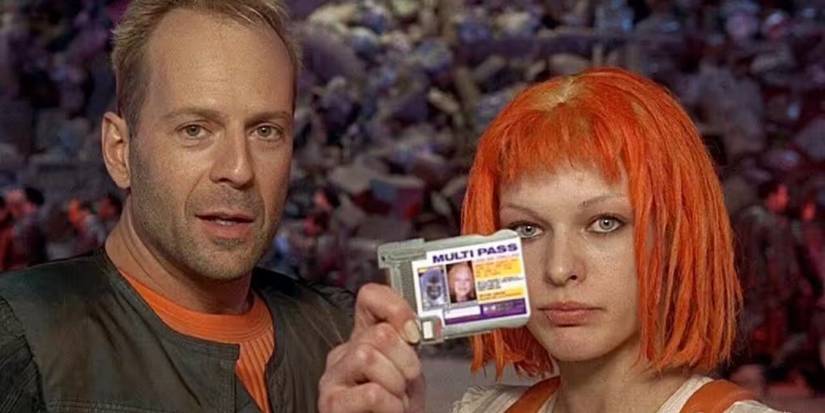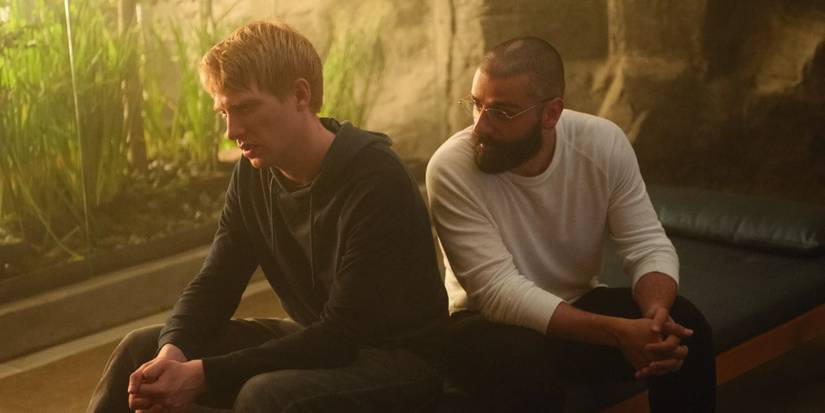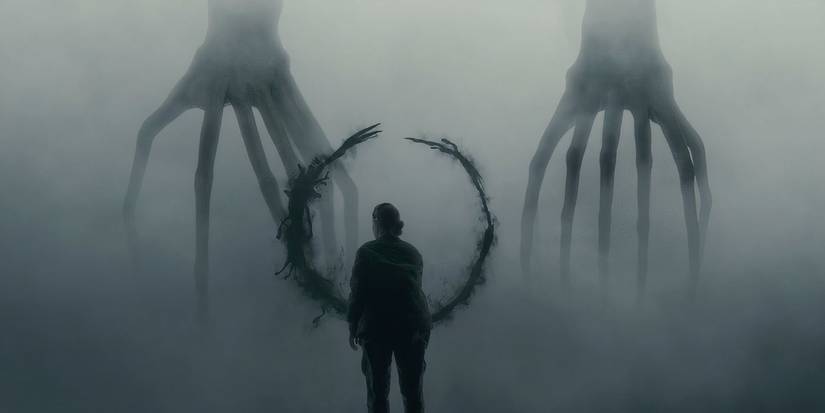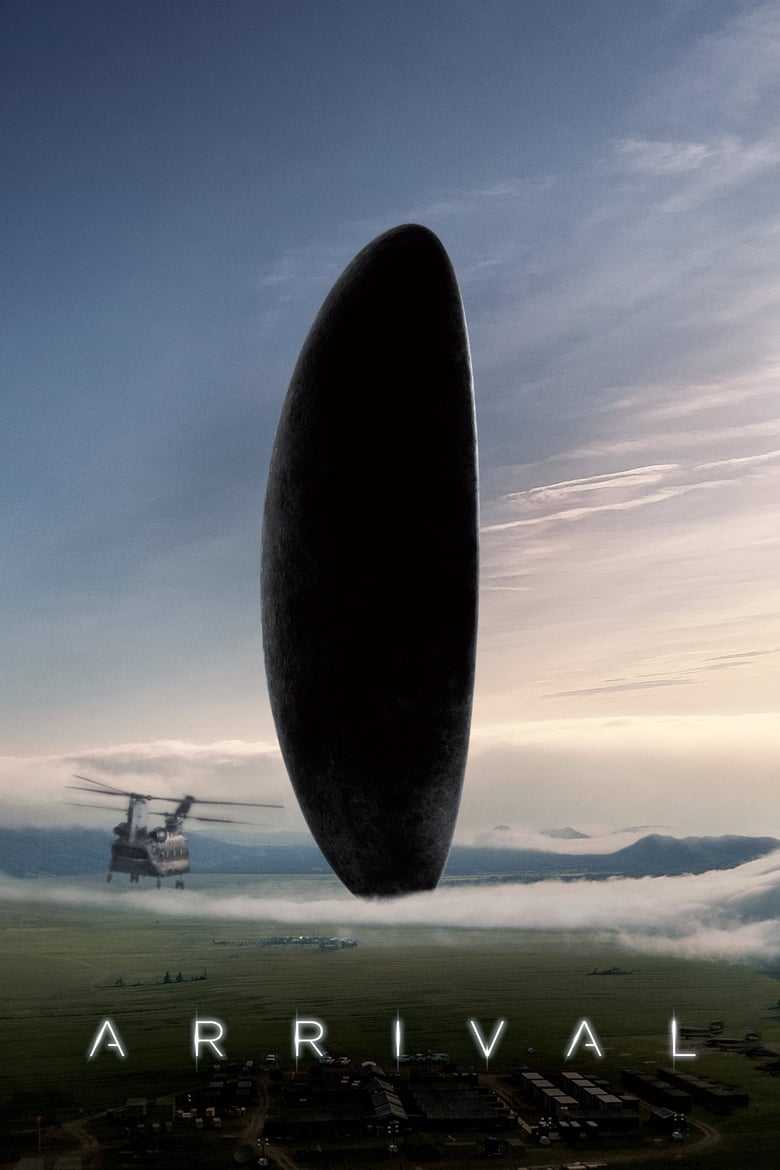
As a Sci-Fi Fan, These Are 10 Movies That Never Get Old for Me
Science fiction movies — or sci-fi, for short — have gripped audiences since the beginning. Consider A Trip to the Moon, a 1902 silent film often considered the first entry into the genre. It utilized then-modern technology to create a piece of work about humanity’s unimaginable scientific capabilities on a grand, fantastical scale. The genre only escalated from there, but the themes remain the same.
The beauty of sci-fi movies is that they contain complexities. Not only are the characters enduring conflict, but science itself serves as a character and catalyst. It’s an examination of human nature and their relationship with things larger than themselves. Meaning, the viewers’ connection with the subject also adapts with time. Some sci-fi movies offer light-hearted time-travel adventures (Back to the Future), philosophical contemplation (I Origins), or exhibit inventive technology beyond imagination (Ex Machina). Whatever they may be, these sci-fi movies will never get old.
10
‘Eternal Sunshine of a Spotless Mind’ (2004)
If you could erase your memories to protect your heart, would you? This is something that former lovers Clementine Kruczynski (Kate Winslet) and Joel Barish (Jim Carrey) must contemplate after a painful breakup, which leaves them both struggling to move on. An emotional movie on its own, the sci-fi aspect of Eternal Sunshine of a Spotless Mind comes from the technology itself that can repress and remove these memories.
Not only is Eternal Sunshine of a Spotless Mind a sci-fi movie worthy of the genre, but it is also an intensive exploration of the desire for human connection. It’s a thought-provoking philosophical dilemma presented through a tragically beautiful love story between Joel and Clementine. More than that, the movie is told in a nonlinear narrative, from an unreliable narrator; it’s as we uncover Joel’s concealed trauma alongside him.
9
‘Meet the Robinsons’ (2007)
It can be challenging to create a family-friendly movie that’s also enjoyed by older audiences, but somehow Meet the Robinsons managed to do so. Orphan Lewis’s (Jordan Fry) pursuit of finding his birth mother takes him on an action-packed sci-fi adventure to the future with the help of a boy supposedly from that time, Wilbur Robinson (Wesley Singerman). Things get complicated from there.
Meet the Robinsons is a lot like Back to the Future, in many ways; a young boy time-travels and comes in contact with a family that, upon interacting, can create detrimental effects in the present. Few PG sci-fi movies do this — especially in the Disney canon — but the 2007 film transcends heartwarming lessons in the animated realm for something almost nostalgic. The tech. The humor. The music. Meet the Robinsons appeals not only to children, but also to adults.
8
‘Back to the Future’ (1985)
This 1980s classic laid the foundation for a subgenre of sci-fi: time-travel. Yes, there were movies like that that came before, but Back to the Future stands as one of the best. Teenager Marty McFly (Michael J. Fox) teams up with scientist Dr. Emmett Brown (Christopher Lloyd) for an outlandish experiment that results in them going back in time to the 1950s. The number one rule of time travel: do not engage with anything in the past that could change the future. Unfortunately, Marty does just that and must correct this continuity before it leads to dire consequences.
Back to the Future tackles the concept of time travel and the butterfly effect that can result. The objectively absurd concept has been frequently parodied and referenced in modern-day media. Additionally, Fox’s portrayal of Marty McFly could not be better cast as the spunky teenage boy who seeks adventure. Thanks to the movie’s success, Back to the Future expanded into a beloved trilogy.
7
‘I Origins’ (2014)
I Origins offers a thought-provoking premise, following physicist Ian Gray (Michael Gray) in his pursuit to uncover the meaning of life through the eyes. In the process, he falls in love marked by tragedy, forms a deeper bond with a coworker, and embarks on an unintentional journey towards defining the soul. There is a clear battle between science and spirituality; between evidence and faith. Can the two coincide?
It’s more of a romance/drama infused with subtle sci-fi elements. However, the science behind the eyes is the foundation of the plot; it’s best to suspend disbelief (as the characters themselves learned to do). The indie movie was made with a humble $1 million budget and, despite the resources, managed to create a subtle masterpiece in its own right. The film marks yet another collaboration between director Mike Cahill and Brit Marling, both no strangers to philosophical sci-fi.
6
‘2001: A Space Odyssey’ (1968)
2001: A Space Odyssey set the precedent for what a sci-fi movie should be. It tackles the relationship between man and machine in an evolutionary sense: how we started, where we are now, and where we might be heading. It’s not quite dystopian, but it doesn’t offer too much hope, either. There’s a distinct sense of realism in the older production, thanks to revolutionary CGI and effects.
The movie contains over an hour without dialogue; Stanley Kubrick‘s masterpiece of a film relies on visuals and sound effects to tell its epic story. And it worked to the movie’s benefit, as it earned an Academy Award for Best Visual Effects at the 1969 Academy Awards. 2001: A Space Odyssey inspired many movies throughout the decades; these range from Interstellar to Blade Runner — and, of course, the opening sequence in Barbie. Few movies have achieved such a legacy. The desire to return to 2001: A Space Odyssey is a result of nostalgia for many fans.
5
‘Guardians of the Galaxy’ (2014)
Marvel movies often incorporate sci-fi elements, such as aliens, advanced technology, and scientific concepts. But nobody does it better than Guardians of the Galaxy. The complex ensemble cast. Whimsical depiction of galactic worldbuilding. A plotline that goes beyond superheroes and villains. Not only must The Guardians save the galaxy, they must also save themselves.
It’s brighter (both in color and tone), unlike many darker Marvel entries — much thanks to director James Gunn. And in a testament to its fan reception, Guardians of the Galaxy exceeded box office expectations well into the MCU’s arc. They proved essential to the success of the franchise. They concluded a trilogy worthy of its reputation, not to mention the needle drops in Guardians of the Galaxy, which are iconic in their own right.
4
‘The Fifth Element’ (1997)
The Fifth Element does not take itself seriously, which works to the movie’s benefit. It follows a ridiculous premise with high stakes, allowing dark humor to flood through. Following a 5,000-year cycle, Earth is subject to destruction on a mass scale. But one insignificant man, Korben Dallas (Bruce Willis), and his friend, Leeloo (Milla Jovovich), make it their mission to stop this from happening.
By 1997, Willis had established himself as a Hollywood star, boasting a filmography that included Die Hard, 12 Monkeys, and Pulp Fiction. Yet, The Fifth Element stands out for its unique presentation, unlike what we’ve seen from him before. It’s pure camp cinema thanks to boldly outrageous outfits, cyberpunk sets, and quippy dialogue — a welcome deviation from many sci-fi films at the time, and even today. The Fifth Element is now a sci-fi cult classic with a steady fanbase backing the movie’s longstanding legacy.
3
‘Ex Machina’ (2014)
Ex Machina explores the conflict between AI and humans during its early modern development. Tech CEO Nathan Bateman (Oscar Isaac) invites lowly programmer Caleb Smith (Domhnall Gleeson) to spend time at his mansion as he interacts with a hyper-realistic AI robot, Ava (Alicia Vikander). From there, Caleb essentially puts Ava through the Turing Test. Is Ava aware of her existence? Do Nathan and Caleb know this? The movie explores themes of humanity, religiosity, and technology, and how they intersect with one another.
Returning to Ex Machina years later, it’s clear that such a premise would be harder to execute today, due to the rapid changes in AI. This is the point that Ex Machina sought to exhibit. Additionally, the 2015 film was one of many that catapulted Isaac’s career forward during the 2010s. His filmography is vast and versatile, but it’s Ex Machina where his intensity was evident. This, along with Isaac’s chemistry with Gleeson and Vikander, significantly contributed to the movie’s success.
2
‘Interstellar’ (2014)
Interstellar is often considered one of the greatest sci-fi movies of all time, for good reason. Interestingly, it can be viewed as a hero’s journey as Cooper (Matthew McConaughey) leaves the world he knows behind in search of something greater — both for himself and those living on his dying planet. This takes him, along with a crew of space explorers, scientists, and one smart-mouthed AI assistant, on an intergalactic adventure. Although there may be a lot going on at once, the film weaves it all together into a cohesive plot that tells the story of space survival, love, and human capability.
Notably, it’s a beacon of hard sci-fi in which Christopher Nolan recruited scientists in their field to consult on the script. As a result, Interstellar brilliantly veers towards probable accuracy, enticing both fans of fiction and science (hence: sci-fi). Nolan and iconic composer Hans Zimmer have collaborated many times before, and Interstellar’s soundtrack is pure cinematic excellence. Not only is the movie worth returning, the soundtrack is worth revisiting (many times over).
1
‘Arrival’ (2016)
In many ways, Arrival is a foil to what we expect from an alien-centric movie. When alien spaceships invade the Earth, it causes panic as to what their intentions might be. But there is one scientist, linguist Dr. Louise Banks (Amy Adams), who is determined to uncover the truth. As it turns out, she holds much more importance to this mission than will reveal itself as the movie progresses. Is there a way to connect with these alien creatures beyond earthly means of words?
Arrival offers a clever depiction of what alien life can truly be. They are not little green men or robotic-looking humanoids. Instead, the extraterrestrial figures possess shapes and minds that are foreign in nature. There is a clear distinction between us and them. The movie follows a nonlinear narrative that might be confusing at first. Upon rewatch (or many), it becomes easier to decipher and even point out Easter eggs, making for an even more enjoyable viewing experience.


